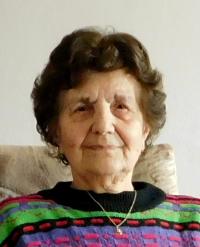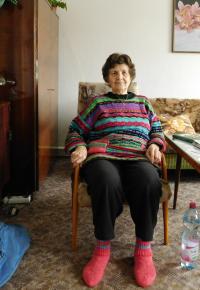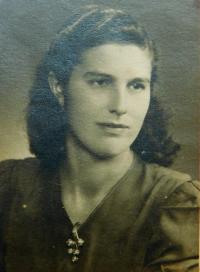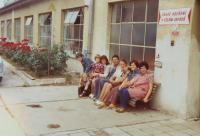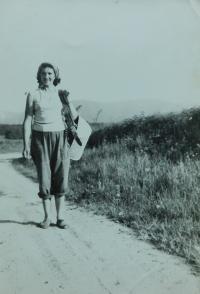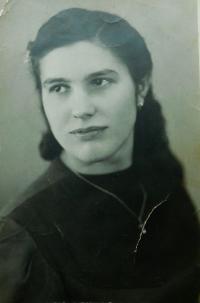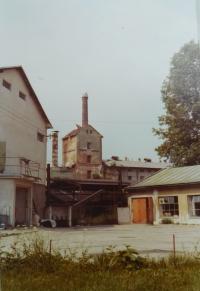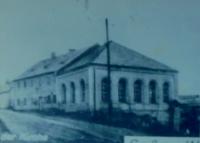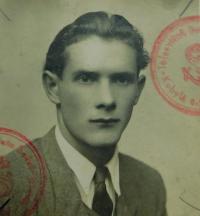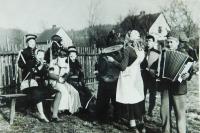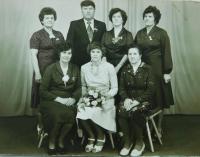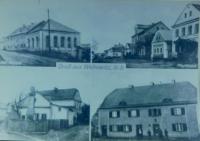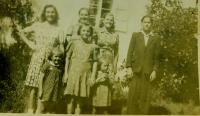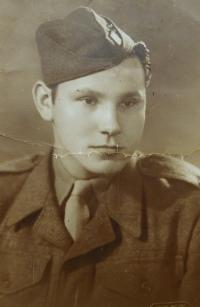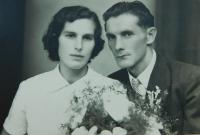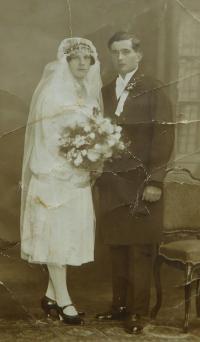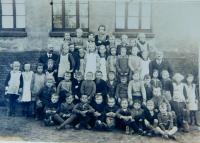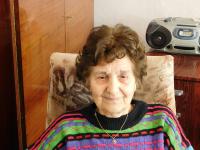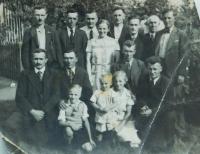The father was killed by a member of the Polish underground resistance

Download image
Anna Lišková, née Ringová, was born on 18th July, 1929 in the village of Wehowitz (nowadays a Polish village of Wiechowice, in 1936 - 1945 called Wehen). Her father of was German and her mother of the Czech nationality. Witness´ native village was located in the Prussian part of Silesia right at the Czechoslovak borders. To make living for the family the father apprenticed a bricklayer during WW2 in 1941 at the age of thirty-eight and joined the organisation Todt. As a leader of a small group of workers he worked in Hamburg, Lübeck, Hannover and also Crimea. From there he was transferred to Čenstochová (Polish Częstochowa) in the former General gouvernement. There he stayed also in the summer 1944, when in the framework of the even Storm an all-national Polish upraise against German occupation broke out, the most important act of which became the Warsaw Uprising. The resistance was very strong also in Čenstochová. And right on 30th August, 1944 the father lost his life due to a stab wound in his belly probably caused by a member of the Polish resistance. The mother, who was in the advanced stage of pregnancy, went to have her husband buried in Čenstochová. Yet she only saw his body in a mass grave. Only a week later her youngest daughter Isolda was born. Allegedly already in October 1944 the family got evacuated and they spent a year and a half in a small village of Frasdorf in the foothills of the Bavarian Alps. Within repatriation the family went back to Czechoslovakia in May 1946. They settled down in Vlčice in Jesenicko region. In 1953 the witness married Josef Liška and moved to his farm in Kobylé nad Vidnavkou. The husband was a private farmer, but back then the communist regime was managing an all-republic collectivisation, so he was constantly forced to join the united agricultural cooperative. He managed to resist for many years, but he had to pay back way too high ratios of agricultural commodities and Anna Lišková remembers that often basic food was lacking at home. Finally the husband had to join the state agricultural cooperative Žulová in 1961, and the witness also got a job there. Following unpleasant peripetios she could leave two years later to the factory producing shopping bags called Gala, a national company in the nearby Hukovice, where she remained until retirement. In 2017 still lived in Kobylé nad Vidnavkou.
